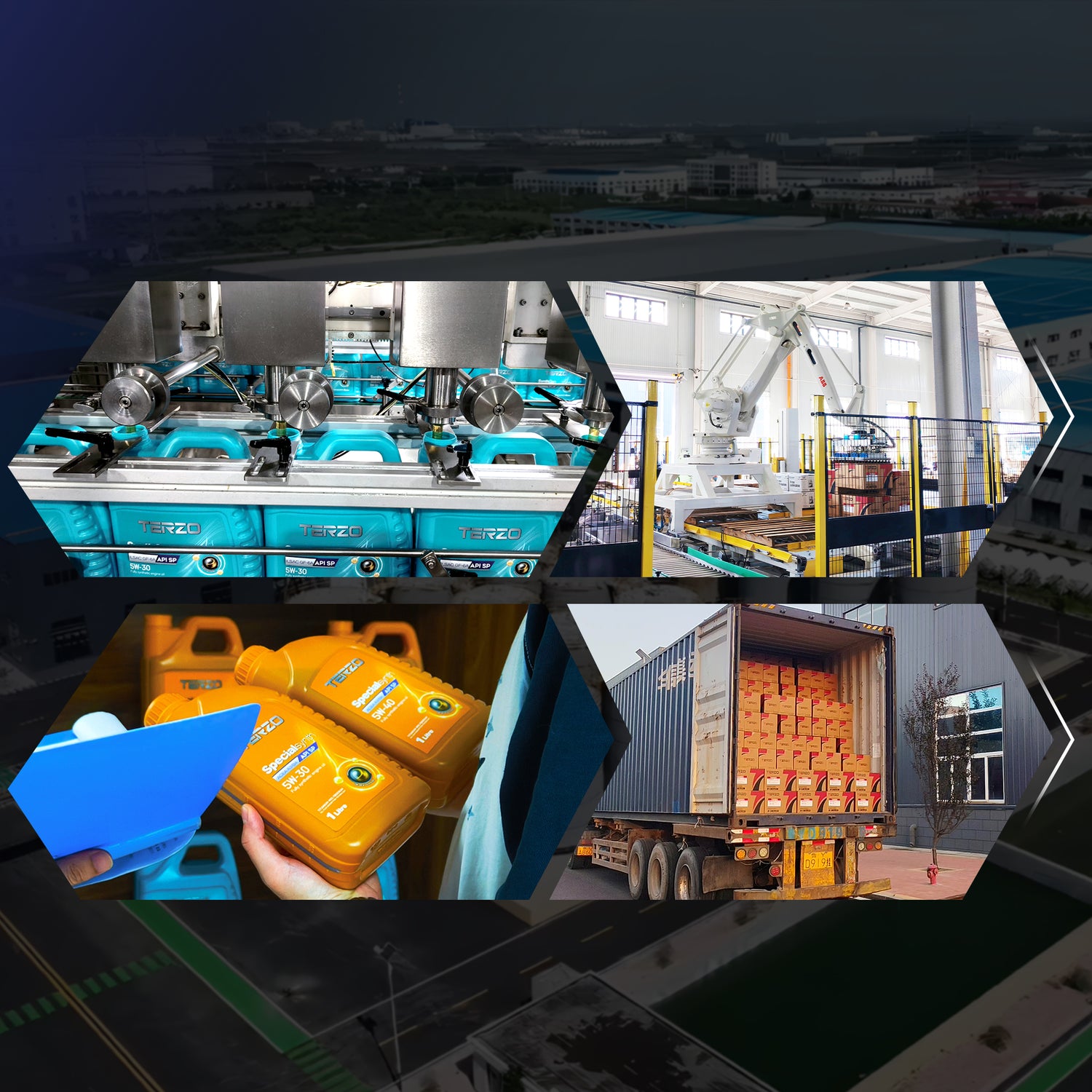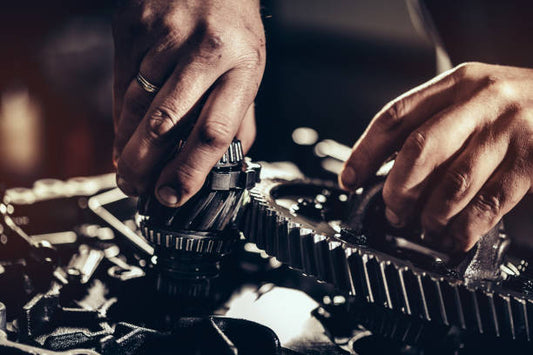Technical Whitepaper on Automotive Transmission Fluid Maintenance ——Lifecycle Management Strategy Based on SAE/API/ISO Standards
I. Core Functions & Technical Specifications of Transmission Fluids
1.1 Functional Architecture
| Functional Module | Technical Mechanism | Key Performance Metrics |
|---|---|---|
| Power Transfer | Torque converter efficiency | Energy transfer efficiency ≥92% (ISO 9123) |
| Hydraulic Control | Valve body precision (0.01mm-level) | Pressure fluctuation <5% (SAE J2488) |
| Lubrication Protection | Gear contact surface oil film strength | Extreme pressure performance ≥1200N (FZG Stage 9) |
| Thermal Management | Heat exchanger efficiency | Temperature rise ≤35°C (100km continuous operation) |
1.2 Base Oil Technology Evolution
Three Generations of Base Oil Performance Comparison
| Type | Viscosity Index (VI) | Pour Point (°C) | Oxidation Stability (TOST, h) |
|---|---|---|---|
| Mineral Oil (Gr I) | 95–105 | -15 | 800 |
| Hydrocracked (Gr III) | 120–130 | -30 | 1,500 |
| PAO + Esters (Gr IV/V) | 140–160 | -45 | 4,000+ |
II. Fluid Degradation Mechanisms & Testing Standards
2.1 Degradation Pathways
-
Mechanical Shear Degradation
-
HTHS viscosity decline: 7.3cP → 5.1cP (60,000 km)
-
Polymer chain scission rate: 18% per 10,000 km
-
-
Oxidation & Sludge Formation
-
Total Acid Number (TAN) increase: 0.2 → 4.5 mgKOH/g
-
Sludge accumulation: 150 mg/100mL (ASTM D893)
-
-
Metallic Contamination
-
Iron content: 5ppm → 320ppm (Ferrography)
-
Copper corrosion rating: 1a → 3b (ASTM D130)

-
2.2 Diagnostic Technology Matrix
| Testing Method | Critical Indicator | Failure Threshold |
|---|---|---|
| Rotary Pressure Vessel (RPVOT) | Oxidation induction time (min) | <50% initial value |
| FT-IR Spectroscopy | Carbonyl peak area (1720cm⁻¹) | >30% increase |
| Laser Particle Counting | ISO 4406 contamination level | ≥18/16/13 |
| Dielectric Constant Analysis | Loss factor (tanδ) | >0.15 |
III. Oil Change Interval Optimization Model
3.1 Driving Condition Coefficients
Formula: Interval = Baseline × K₁ × K₂ × K₃
| Coefficient | Range | Calculation Logic |
|---|---|---|
| K₁ (Load Intensity) | 0.7–1.5 | (Towing mass/Rated load) × 0.3 + 1 |
| K₂ (Thermal Stress) | 0.5–1.2 | (Avg. oil temp – 90)/30 × 0.4 + 1 |
| K₃ (Shift Frequency) | 0.8–1.3 | (Shift count/1,000 km) × 0.05 + 1 |
3.2 Case Study: Urban Taxi (400 km/day)
-
Load ratio 120% → K₁=1.06
-
Avg. oil temp 105°C → K₂=0.92
-
1,800 shifts/1,000 km → K₃=1.09
-
Adjusted interval: 60,000 km × 1.06 × 0.92 × 1.09 = 54,700 km

IV. Fluid Replacement Technical Protocols
4.1 Dual-Mode Replacement Comparison
| Parameter | Gravity Drain | Flush Machine |
|---|---|---|
| Residual old fluid | 35–45% | <5% |
| Labor cost | 0.5 hr/$150 | 2.5 hr/$800 |
| Application | Routine maintenance | High-mileage/repair cases |
| Cleanliness improvement | ISO 4406 ↓1 class | ISO 4406 ↓3 classes |
4.2 TERZO Smart Fluid Exchange System
-
Three-Stage Filtration:
-
20μm magnetic pre-filter
-
β=2000 fine filter
-
Molecular sieve dehydrator
-
-
Performance:
-
Residual fluid ≤2.7%
-
Particle contamination ≤ISO 14/12/9
-
V. Breakthroughs in Long-Life Fluid Technology
5.1 TERZO TX-1 Full Synthetic Formulation
Innovations:
-
Boron-Nitrided Molybdenum Additive: 23% friction reduction (SRV test)
-
Hyperbranched Polyisobutylene: Shear Stability Index (SSI) ≤8
-
Nano-Ceramic Deposition: Gear surface hardness +2 HRC
Performance Data:
| Test Parameter | TERZO TX-1 | Industry Benchmark |
|---|---|---|
| HTHS retention @100,000 km | 96.2% | 82.5% |
| Copper corrosion (100°C/3h) | 1a | 2b |
| LSPI suppression rate | 100% | 78% |
VI. Standardization Recommendations
-
Big Data Platform Development:
-
Collect 100,000+ vehicle performance datasets
-
AI-driven predictive model (error <8%)
-
-
Maintenance Standard Revisions:
-
Implement real-time fluid monitoring (e.g., dielectric sensors)
-
Establish dynamic interval national standards
-
-
Technician Certification:
-
ATF Specialist Certification (Level I/II/III)
-
Mandatory biennial recertification

-
Data Sources: SAE Technical Paper 2023-01-1206, TERZO Engineering Lab 2024 Annual Report
Patent Notice: Technical parameters protected under Patent WO202310000000A1. Commercial use prohibited without authorization.





